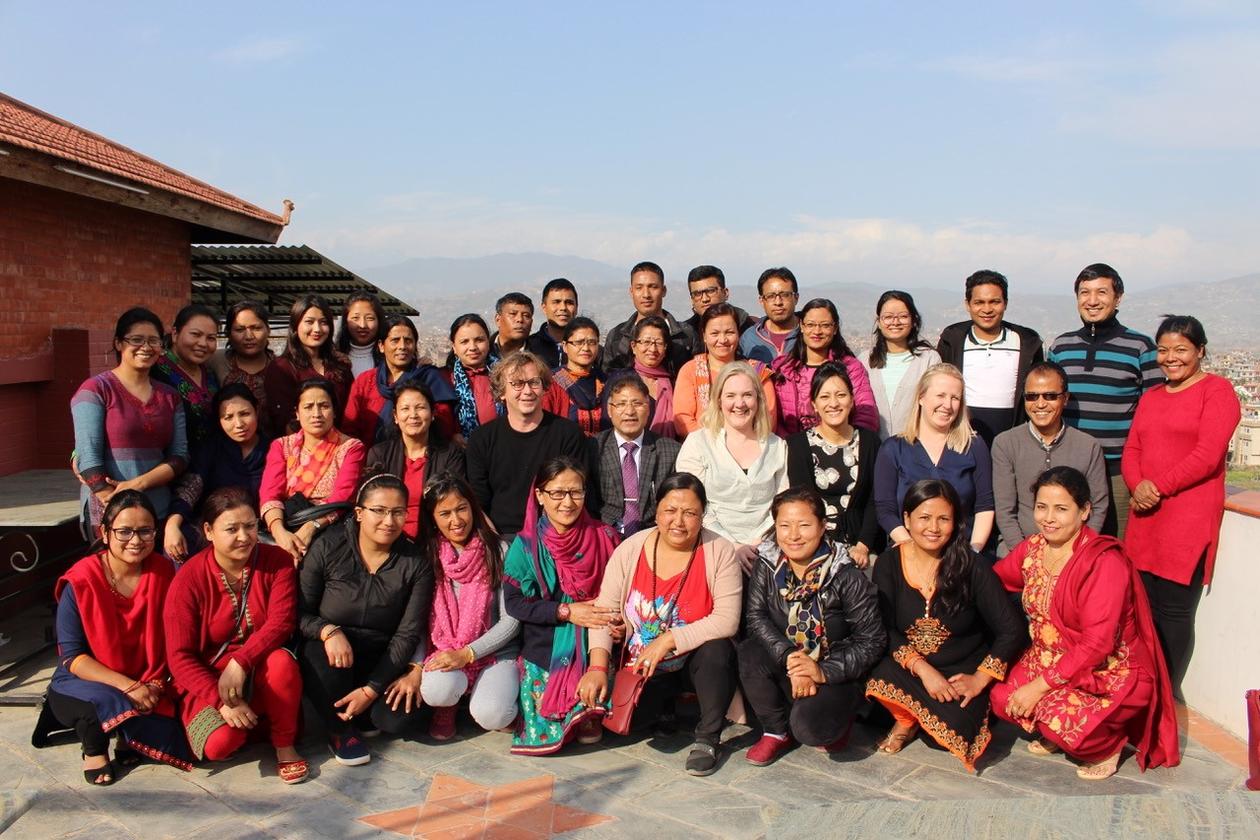Overcoming research challenges
The research process can be arduous, but few projects are also beset by as many natural disasters as the Peanut butter - B12 study by CIH researcher, Tor Strand, and colleagues in Nepal.

Main content
The ground-work for the current study was established in a number of studies conducted by Strand and co-workers in Nepal, India, and Tanzania. Since 1998, they have been investigating the effect of nutrient exposure in early life on subsequent growth and cognitive development in children (learn more from the VitaBeginning website).
The Peanut Butter Intervention
The focus on this study is B12. B12 supplements are not expensive, and it may be that supplementation can greatly enhance health, especially in children. Strand and his partners were granted funding to undertake a randomised control trial (RCT) in infants in Nepal. In a blind trial, meaning the researchers did not know which child received what treatment, some children received a daily supplement of peanut butter with B12, some with only peanut butter. The children’s B12 levels were measured at regular intervals, as well as their cognitive and neurological development.
One natural disaster after another …
Undertaking a RCT is challenging because of the logistics of dealing with many people – agreements with participants, follow-ups etc. This intervention involved 600 children, and despite the 7.8 earthquake of 2015, the resulting disease epidemics and problems of re-building, political blockades, and the floods and landslides of 2017, only 26 children were lost to the study – an approximately 4% attrition rate! Tor Strand underlines how this success highlights the hard-work and dedication of the more than 30 people in the project team, who have been working full-time for 3 years.
Intervention studies, such as Randomised Control Trials (RCTs), are costly and time-consuming, but, when undertaken properly with sufficient quality control measures, they are considered to be the «gold-standard» for measuring treatment effect (learn more). In addition, such large studies have important impacts in evidence-based decision-making in health system policy. Learn more.
The children in this study will be follow-up for an additional 2 years. The results of this study will provide important information about the relationship between B12 and growth and cognitive development, and the data will impact decision-making and vitamin B12 nutrient supplementation in low- and middle-income countries around the world.
- Learn more about the project
- Read an interview with Tor Strand from before the project started in 2014
